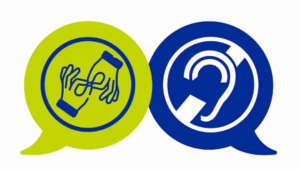The value of professional translation services is not always easy to calculate, especially for someone unfamiliar with the industry. The return on investment is difficult to define, and we should not measure it based only on cost. It is easy to think that every agency completes translations the same way. When looking for the right translation partner, you may wonder why one agency is quoting a higher price for the same perceived deliverable. This is where many translation vendors and buyers get it wrong. Price should not be the only deciding factor when choosing your translation vendor.

A holistic approach to a translation project’s success
When you begin a translation project, you must consider all factors of the process in order to ensure success. For the project to be successful, it is crucial to involve the following professionals, technology, and processes:
- A translation project manager with a linguistic background, extensive experience in managing translation projects, and multilingual proofreading skills
- Translators and editors who are linguistic professionals, with ample and proven experience on the subject matter of the translation
- A very strict quality assurance process that guarantees high-quality and accurate translations
- Open communication with the translation provider, ensuring the ability to ask questions and make changes as needed
- Computer-Assisted Translation (CAT) tools used to leverage repetitions and matches with previous translations. This technology ensures both terminological consistency and linguistic style guide conformity. CAT tools create a translation memory database, enabling the buyer to cut costs on future translations.
- Transparency and ownership- the customer should always have full rights and access to the translation memory
Low cost Translations
When you try to get your translation for the lowest cost possible, you are not setting your translation project up for success. Cheap translation agencies who use low-cost techniques cannot fully meet the above requirements. Low-cost techniques omit crucial steps from the process and may prevent the client from accessing their own translation memories and glossaries created during the process. In the worst case scenario, a low-cost translation may never have any trained linguists working on it; and no quality assurance step. This may result in the translation project being more costly for the buyer, as a second provider will need to fix the mistakes. They may even need to start the project over from scratch.
At Global Arena, we use technology specially designed to manage translation workflows and translation memories. We involve three independent professionals for each project that work within a structured environment of checks and balances. All of our professionals who work on your translation are highly trained and experienced; and we hold our quality assurance to the highest standards. The product you receive from Global Arena does not require editing and is ready to publish.
A Success Story
In one case, a pharmaceutical company was in need of Spanish and Portuguese translations. The project was quite large so Global Arena provided a translation sample in each language to allow the customer to verify the translation quality. Though the client initially rated our translations as pristine, they opted for a different vendor that claimed to provide the same services at a lower price. After some time of working with the low-cost vendor, the customer realized that our pricing structure very well justified avoiding endless rounds of in-house translation reviews, missing deadlines and second-guessing the deliverables. Like many services, translation is a field where going for lower cost providers might mean risking quality and being exposed to unnecessary liability.
Global Arena’s translations
The customer realized that Global Arena’s translations were ready for distribution whereas the other vendor’s translations were not.
The customer had in-house employees who were native speakers of the target languages; and could act as final proofreaders of the translation before distribution. They initially opted for the other translation vendor because they would have full control over the final version before publication at a lower cost. The vendor cut costs by eliminating the quality assurance step. However, when they received the translation, the in-house personnel had to heavily edit and in some cases re-translate the documents. This resulted in excessive back and forth between the in-house employees and the translation agency.
Furthermore, by taking up valuable resources from the company, opting to cut costs wasted money in the end.
While the low-cost process seemed to provide considerable savings, the heavy involvement of in-house personnel led to significant delays in delivering the final translations. It distracted employees from their responsibilities, and generated additional costs that the client didn’t consider prior to deciding on the low-cost approach. Additionally, the in-house personnel became frustrated because of delays, extensive reviews, and repeated errors since they were not a part of the vendor’s translation process. In the end, they were unable to record their suggestions and changes in the translation memory.
The delays in deliverables and the hours of internal editing came at a much higher cost than the difference in the cost per word.
Ultimately, the customer returned to Global Arena and requested a few projects implementing our process, technology, and expert human resources. The original price we offered didn’t change, but the benefits were obvious to the client and provided immediate and long-term savings. The amount saved was measurable in terms of reduced response time (days). And time-to-market predictability- they were able to meet translation deadlines. Also, the employees were now free to focus on their core job duties; and no longer had to waste hours of their time correcting translations.
Global Arena assembled translation teams for each language that consisted of highly qualified translators with experience working in the pharmaceutical field. The translators used held advanced degrees and included MDs, pharmacologists, biologists, and biochemists. We still use the same translation teams for this client’s projects, which, with the use of CAT tools and translation memory, ensures consistent terminology. Consequently, we always respect the client’s linguistic preferences.
The project Manager
Global Arena assigned a dedicated project manager who provides a single point of contact for all projects.
The project manager is familiar with the projects and preferences; and can respond flexibly and knowledgeably to all requests on very tight deadlines. Familiarity with the project manager means that the client does not waste time explaining expectations, priorities, and processes every time.
The client found Global Arena and its approach so efficient that we now also handle their multilingual layout work, including work in English.
The result is that translations delivered now require minimal to zero editing by the in-house employees; and are ready for distribution. This reduces time to market and allows the client’s in-country resources to focus on their responsibilities and avoid distractions. Our customer decided that working with Global Arena gave them the necessary peace of mind; ensuring their translation was done well. Using Global Arena’s services allowed the client’s employees to focus fully on the activities that affected their company’s bottom line.
If you want to evaluate how Global Arena can help you to optimize your translation processes and cost, please contact us.




